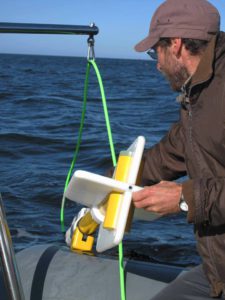Maritime Archeology is the specialty within Archeology that studies this human interaction with aquatic environments over time, using as a source of research the material vestiges of culture that persist in shipwreck sites, port cities and in coastal landscapes. . Underwater Archeology, which includes a set of methods and techniques suitable for investigating the remains that are submerged or in intertidal areas, and Nautical Archeology, focused on the study of construction technology, are also part of this line of research. and use of boats by different human groups.
In our regional context, the archaeological sites of shipwrecks, located underwater or in intertidal areas of the Atlantic coast and the mouth of the Río de la Plata, stand out in our regional context. Together, these vestiges of maritime culture are part of the nation’s cultural heritage, and their research provides us with unique opportunities to learn about aspects of the culture, society, history and economy of the region, in its local and global links.
Thus, this Research Line has as its central objective the development and application of a methodology for the systematic study of archaeological sites located in the intertidal and underwater areas of the Region. In this sense, the research activities of the line have 3 approaches: 1) Monitoring and registration of shipwrecks in intertidal areas; 2) Study and development of a management plan for historic shipwrecks; and 3) Preparation of an archaeological database of the coastal zone of the region.
Projects:
Baseline studies for the elaboration of a Charter of the Maritime and Underwater Cultural Heritage of the Colonia’s Bay and its insular zone. Department of Colonia, Uruguay. Sponsored by ANII (2020-2023). PI: Rodrigo Torres.
Technologies Applied to the Management of Underwater Cultural Heritage of Maldonado’s Bay, Uruguay. Funding ANII (2015-2018). Responsible: Antônio Lezama.
Three-dimensional Digital Technologies Applied to the Management and Dissemination of the Maritime-Coastal Archaeological Heritage of Uruguay. Funding RDT CSIC (2017-2020). Responsible: Rodrigo Torres.
El registro arqueológico integrado; evaluación de la continuidad subacuática de sitios arqueológicos costeros. Financiación CSIC Iniciación (2018-2020). Responsable: Eduardo Keldjian
Naufragios y siniestros marítimos en Uruguay; sistema de información geográfico que integra antecedentes orales, históricos y cartográficos del Uruguay. Financiación: CIPAC 2018. Responsables: Eduardo Keldjian y Rodrigo Torres
Underwater and maritime archaeology project in Cabo Polonio, Rocha (2007-2021). Responsables: Elena Saccone y Paula Larghero

